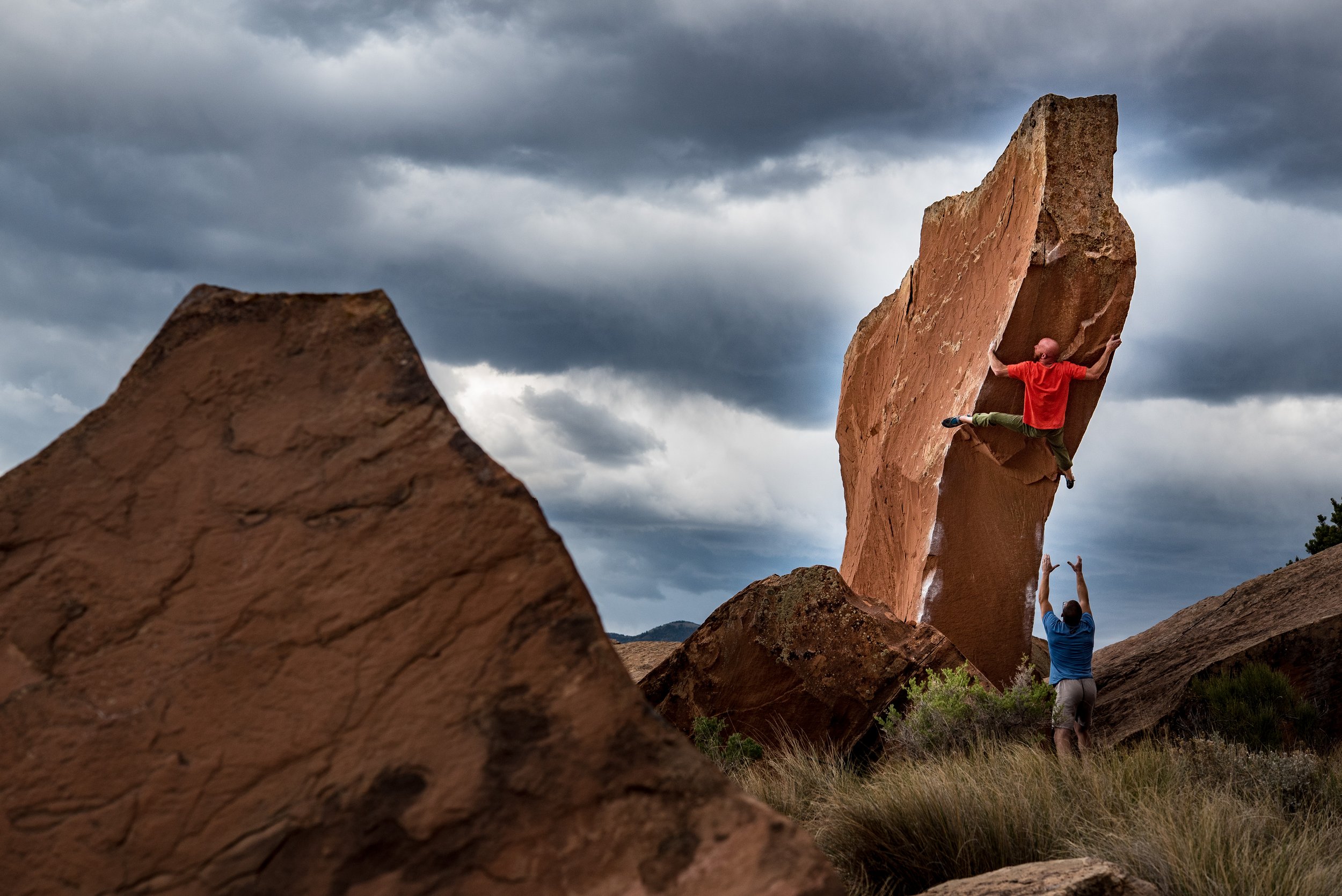Chris Schulte squeezing his way up Airwolf (V6). Photo by AAC member Dawn Kish
February 8, 2022
The Honorable Spencer Cox
Governor
State Capitol
Salt Lake City, Utah 84114
Dear Governor Cox,
On behalf of our 1,000 members in the state of Utah, and our 25,000 members nationally, the American Alpine Club (AAC) is writing to express our immense concern with your office's hiring of a law firm for the purposes of litigating the protections afforded via national monument designation to both Bears Ears and Grand Staircase-Escalante while simultaneously soliciting the Outdoor Retailer show to return to your state’s capitol.
The AAC is a century-old, national non-profit organization that supports the climbing and human-powered outdoor recreation communities through education, community gatherings, stewardship, policy, advocacy, and scientific research. Bears Ears and Grand Staircase-Escalante National Monuments are significant not only for our members who enjoy the climbing and other recreational opportunities afforded by these unique landscapes, but also for their extensive cultural and ecological values that have been cherished by Tribes such as the Navajo Nation, Ute Mountain Ute Tribe, Hopi Tribe, Pueblo of Zuni, and Ute Tribe for time immemorial. It is for these reasons we advocated for the restoration of these monuments, following their reduction during the Trump Administration, and celebrated when the Biden-Harris Administration made the profoundly important decision to honor the voices of Indigenous communities, climbers, and conservationists by reinstating their protections.
Our advocacy over the years has been clear - we oppose any action aimed at weakening the efficacy of the Antiquities Act or any other bedrock environmental law that protects our nation’s lands and waters. With more than 100,000 Native American cultural sites, countless scientific and historical objects, and several thousand individual rock climbs that attract climbers from across the globe, we believe that the proper care and management of these objects accurately reflects the size of the monuments as designated by the Biden Administration.
More than that, these protections are in line with the Biden Administration’s America the Beautiful initiative, which aims to tackle the climate crises at home and abroad by conserving 30% of land and water by 2030. Ensuring these landscapes are protected helps our country address not only the climate and extinction crises, but it bolsters recreation-based economies which rely on public lands as the infrastructure for activities like climbing.
While we find it egregious that your office would consider filing a lawsuit against the Federal Government to remove protections from these sacred, wild, and recreation rich landscapes, we do not share this note as a boycott of the State of Utah or the return of the Outdoor Retailer to the Beehive state. Salt Lake City is home to one of the largest climbing communities in the country, and the state to that of some of our nation's most significant and historical climbing areas. Access to the outdoors attracts many of our members to live and work in Utah, and is certainly a reason amongst many in our community for bringing Outdoor Retailer back to the state.
However, if your office moves forward with its intended litigation to erode protections afforded by the Antiquities Act to monuments in Utah (and potentially across the country), we will urge that the Outdoor Retailer show not return to UT, or boycott the show itself. We stand with our partners at The Conservation Alliance and Outdoor Alliance, who have already asked your office to respect our industry's values and the lands we cherish.
We urge you to take our request seriously and abandon your efforts to remove protections to Bears Ears and Grand Staircase-Escalante National Monuments. Instead, we welcome you to join the outdoor industry in creating a strong and vibrant future for the public lands and outdoor recreation economies across the American West, one that values the perspectives of tribal, outdoor, conservation, and local communities as well as the majority of Utahns and Americans.
Thank you,
Jamie Logan, AAC Interim-CEO
AAC Policy Committee Members:
Peter Metcalf
Pete Ward
Rob Deconto
Graham Zimmerman
Katie Stahley
Nina Williams
CC:
Taylor Luneau, AAC Policy Manager
Amelia Howe, AAC Advocacy and Government Affairs Manager
The Honorable Deb Haaland, Secretary of the Department of Interior
Herve Sedky, CEO, Emerald
Lise Aangenbrug, Executive Director, Outdoor Industry Association
Adam Cramer, Executive Director, Outdoor Alliance
Shoren Brown, Interim Executive Director, The Conservation Alliance
President Stuart Adams, UT State Senate
Speaker Brad Wilson, UT State House
























